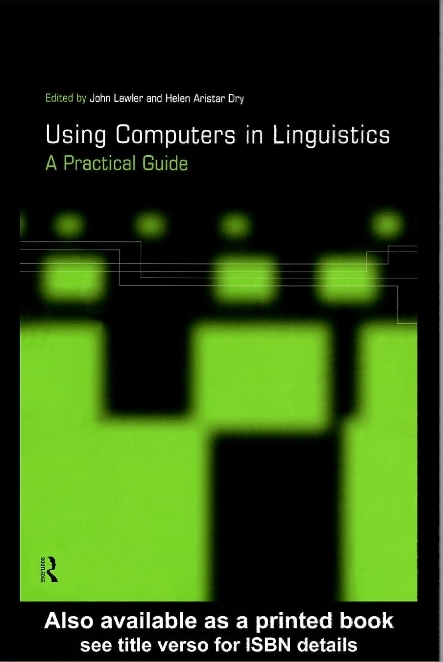

Most ebook files are in PDF format, so you can easily read them using various software such as Foxit Reader or directly on the Google Chrome browser.
Some ebook files are released by publishers in other formats such as .awz, .mobi, .epub, .fb2, etc. You may need to install specific software to read these formats on mobile/PC, such as Calibre.
Please read the tutorial at this link: https://ebookbell.com/faq
We offer FREE conversion to the popular formats you request; however, this may take some time. Therefore, right after payment, please email us, and we will try to provide the service as quickly as possible.
For some exceptional file formats or broken links (if any), please refrain from opening any disputes. Instead, email us first, and we will try to assist within a maximum of 6 hours.
EbookBell Team

4.8
34 reviewsUsing Computers in Linguistics provides a practical introduction to recent
developments in linguistic computing and offers specific guidance to the linguist or language professional who wishes to take advantage of them.
The book is divided into eight chapters, each of which is written by an
expert in the field. The contributions focus on different aspects of the interaction of computing and linguistics: the Internet, software for fieldwork and teaching linguistics, Unix utilities, the availability of electronic texts, new methodologies in natural language processing, and the development of the CELLAR computing environment for linguistic analysis.
Features include:
• a glossary of technical terms, including acronyms
• chapter appendices which list and review relevant resources, such as
books, software, URLs
• more extensive and regularly updated appendices of resources on the
World Wide Web:
http://www.lsa.umich.edu/ling/jlawler/routledge
Using Computers in Linguistics will be indispensable for anyone interested
in linguistics.